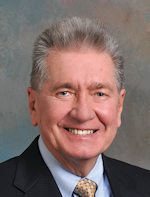Question:
I am a specialty dental practitioner who has joined a two-owner practice as an associate. My base salary against commission and percentage ends at the end of my first year of associateship. I will then be paid only based on my productivity. The senior owner had planned to retire at the end of my first year but now does not want to do so. I am concerned that there are insufficient patients and referral sources for me to earn a reasonable living on a productivity-only basis. What can I do?
Prescott:
Have a discussion with both existing owners and tell them that you perceive there are insufficient patients and referral sources for you to earn a living on a productivity-only basis until the senior owner leaves the practice. Request that your base salary be continued until the senior owner retires, and further request that a firm date be set for such retirement. Explain to the owners that you took your position in reliance on the senior owner retiring at the end of your first year of employment. Hopefully, the owners will find it reasonable to continue your base salary.
You may also be interested in ... Alternatives to selling, which CPA to use, and which buyer to choose
If your base salary is not continued against your productivity, have local counsel review the terms of the restrictive covenant contained in your employment agreement under the laws of your state and in light of your reliance on the senior owner’s planned retirement date. Once you know your options, you can decide whether you will stay or leave the practice where you are currently employed. Hopefully, your restrictive covenant will not require you and your family to relocate to continue to practice your specialty.
Should you consider leaving, remind the existing owners that it may be very difficult to recruit another specialist. The difficulty in recruiting specialists is a very good reason why your base salary should continue, especially after you took your position in reliance on the senior owner retiring after your first year of employment.
Question:
I am an associate dentist and have been asked to join as a partner in the practice in the near future. The proposed agreements provide that I pay for the first half of the practice with lender financing. The buy-sell agreement provides for optional rather than mandatory purchases of a departing owner’s interest by the remaining owner, except for death or disability where buyouts are mandatory. I am older than my potential new partner and do general dentistry only. My potential new partner does a significant number of specialty cases. Should a partner desire to sell his or her interest in the practice, the interest could be bought by the remaining partner, or the interest could be sold to a third-party dentist. Is the proposed situation good for me?
Prescott:
The proposed situation is not ideal for either of you. It’s very difficult for a partner to sell a partnership interest to a third-party dentist. Additionally, you are paying fair market value for the first half of the practice and, at a minimum, would want to be relieved of your debt obligation with the lender should you decide to retire or withdraw, possibly due to you being older than your potential partner. Additionally, you would not want to buy out your partner who does specialty cases that you don’t do in the event of your partner’s death or disability.
You may also be interested in ... Setting a buy-out price without appraisal; collections levels and hiring an associate
As an alternative, consider a solo group arrangement, whereby you purchase the first half of your practice and both of you operate your respective practices through separate entities. Your potential partner, as a solo group member, would maintain the partner’s practice with the specialty cases that you don’t perform. It is much easier to sell a practice in a solo group to a third party than it is to sell a partnership interest to a third party in a partnership, because the third party probably doesn’t want a partnership with someone he or she doesn’t know.
Expenses would be either individually allocated or prorated based on respective practice collections in a given month. Staff, to the extent that the two of you choose, could also be shared. Each practice would maintain its own health and retirement plans with common staff members’ benefits, and compensation would be allocated based on hours worked by the respective staff member in each practice. A solo group arrangement allows either practitioner to retire or withdraw from practice and sell to a third party much more easily than trying to recruit a third party as a new partner.
Question:
I am a practitioner in my early 80s who loves to work and completes large cases. My retirement plan is well funded, and I own my practice building, but I am not ready to retire. Should I be looking for an associate to take over my practice when I choose to retire or have to leave?
Prescott:
Probably not, unless you think you’ve found the right person to succeed you—someone who will perform at the same level as you when you’re ready to retire or have to leave. Given your age, you may not have the time or the patience to train an associate.
Consider engaging a practice broker very soon to find a buyer for your practice and real estate, fully payable in cash, as the search may take considerable time. If a dentist agrees to buy your practice for fair market value, he or she will want to remain in your location, and it would be advisable for the buyer to purchase the real estate rather than pay you rent. The buyer could possibly enter a five-year lease with the option to purchase the real estate pursuant to a specified methodology for determining fair market value. Include a “must buy” provision after the initial lease term.
As part of the letter of intent for the sale of your practice and real estate, include a provision that allows you to continue to work for a specified period, number of days per week, and mutually agreed upon compensation.
An alternative to locating a candidate who can purchase both the practice and real estate is to work with your advisors to determine to what extent your building would be suitable to a buyer other than a dentist. Continue to practice until you no longer desire to work or cannot do so, and then close the doors. Patients can be referred to those dentists who cover for you when you are away from the office. Either leave the real estate to family members or sell it to the most suitable buyer that your real estate broker can locate. Fortunately, you have the resources that allow you to continue to work solo or sell your practice and real estate on your terms.
Editor's note: This article appeared in the June 2023 print edition of Dental Economics magazine. Dentists in North America are eligible for a complimentary print subscription. Sign up here.







